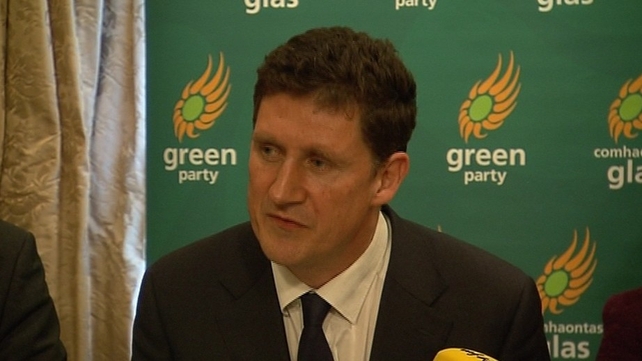Are the the Green Party in Ireland anything other than 'Eco-Tories'?
There is growing concerns and awareness about climate change. Over the recent months, ‘Youth Climate Strikes’ and a number of significant protests have been organised about the threat of environmental disaster. They have taken place across the World and Ireland is no exception. In the last Irish local and European elections there was a surge in support for the Green Party, helped along by a sections of a not unsympathetic media. Many voters viewed the Greens as a party likely to achieve something about the climate change crisis and gained a noticeable amount of support from young people. In part, the Green vote was also a protest vote against the Establishment parties in Ireland. The Greens were the main beneficiaries of the growing concerns and awareness about climate change. The question that arises though is can Ireland's Green Party be trusted? There continues to be an enduring memory that the last time the Green Party shared power with Fianna Fáil, in a coalition government from 2007-2011, it went along with austerity policies and participated in a government also scarred by sleaze and corruption. The result was that the Greens were decimated in the 2011 Irish general election, although many of the young people who voted for the Greens in 2019 will have no memory of this. There is also little doubt that many of the activists in the Green Party would not like to see a repeat of this calamity. However, all the warning signs are there.
At the last Irish Green Party convention in July 2019 held in Dublin, a motion ruling out coalition with Fine Gael and Fianna Fáil was rejected by large majority. Green Party leader Eamon Ryan clearly set the Greens on a clear path to coalition after the next election saying it “must be open and prepared to enter government”. It was also clear that they would be willing to talk to any party who shared its core belief in constitutional, democratic and peaceful politics. The truth is that certain members of Ireland's Green Party leadership are intent on seeking a seat in government. They have a proven track record of willingness to pursue policies that are not in the interest of ordinary Irish working people, wrapped within a programme of eco-friendly policies. It was the ordinary working people of Ireland who suffered when they were last in coalition during the financial crisis of 2008 and the bankers, speculators and financiers who caused the crisis were untouched. Its is perhaps then no surprise that the media were happy to promote them during the last local and European elections in Ireland. They are seen as a safe pair of hands as far as the establishment and big business interests are concerned and the description of them as being no more than 'eco-Tories', is perhaps justified.
An example of this is the Carbon Tax, with the Green Party stating it will seek a €20 increase in carbon tax in the budget and that the party wanted the carbon tax to increase to €90 per tonne by 2030. They were in the coalition government that introduced this tax in 2010. However, Sinn Féin Climate Action spokesperson David Cullinane has affirmed his party’s opposition to increased Carbon Tax, describing the Government proposal as ‘a shakedown of poor and low-income households to appease the environmental guilt of the elite’. It is also the case that there is no evidence to corroborate the theory that Carbon Tax reduces carbon emissions. Sinn Féin view the tax as regressive and a revenue raising exercise, that will widen poverty and inequality between lower-income and higher-income households. Sinn Féin takes the position that the tax is a smoke-and-mirrors tactic to rationalise an unjust tax and appease the over-consumption of wealthy polluters. In March 2019 Sinn Féin members of the Joint Committee on Climate Action published a Minority report "Pathways to Equitable and Sustainable Climate Change in Ireland" which can be seen on the link provided.
Image: Green Party leader Eamon Ryan from RTÉ






